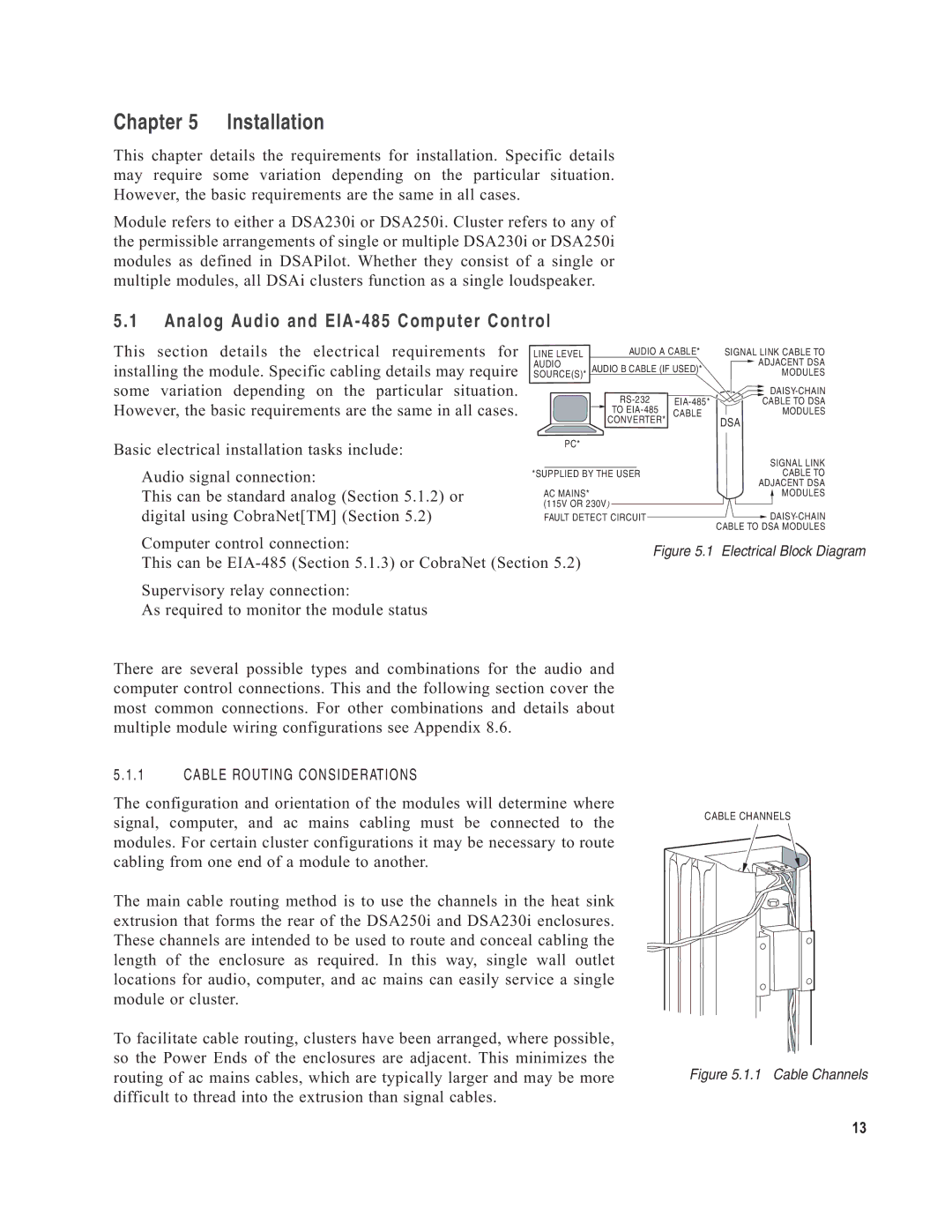
Chapter 5 Installation
This chapter details the requirements for installation. Specific details may require some variation depending on the particular situation. However, the basic requirements are the same in all cases.
Module refers to either a DSA230i or DSA250i. Cluster refers to any of the permissible arrangements of single or multiple DSA230i or DSA250i modules as defined in DSAPilot. Whether they consist of a single or multiple modules, all DSAi clusters function as a single loudspeaker.
5.1 Analog Audio and EIA-485 Computer Control
This section details the electrical requirements for installing the module. Specific cabling details may require some variation depending on the particular situation. However, the basic requirements are the same in all cases.
Basic electrical installation tasks include:
Audio signal connection:
This can be standard analog (Section 5.1.2) or digital using CobraNet[TM] (Section 5.2)
LINE LEVEL | AUDIO A CABLE* | SIGNAL LINK CABLE TO | ||
AUDIO | AUDIO B CABLE (IF USED)* | ADJACENT DSA | ||
SOURCE(S)* | MODULES | |||
|
|
| ||
|
| CABLE TO DSA | ||
|
| TO | CABLE | MODULES |
|
| CONVERTER* | DSA | |
| PC* |
| ||
|
|
|
| |
|
|
|
| SIGNAL LINK |
*SUPPLIED BY THE USER |
| CABLE TO | ||
|
|
|
| ADJACENT DSA |
AC MAINS* |
|
| MODULES | |
(115V OR 230V) |
|
| ||
FAULT DETECT CIRCUIT |
| |||
|
|
|
| CABLE TO DSA MODULES |
Computer control connection:
This can be
Supervisory relay connection:
As required to monitor the module status
There are several possible types and combinations for the audio and computer control connections. This and the following section cover the most common connections. For other combinations and details about multiple module wiring configurations see Appendix 8.6.
5.1.1 CABLE ROUTING CONSIDERATIONS
The configuration and orientation of the modules will determine where signal, computer, and ac mains cabling must be connected to the modules. For certain cluster configurations it may be necessary to route cabling from one end of a module to another.
The main cable routing method is to use the channels in the heat sink extrusion that forms the rear of the DSA250i and DSA230i enclosures. These channels are intended to be used to route and conceal cabling the length of the enclosure as required. In this way, single wall outlet locations for audio, computer, and ac mains can easily service a single module or cluster.
To facilitate cable routing, clusters have been arranged, where possible, so the Power Ends of the enclosures are adjacent. This minimizes the routing of ac mains cables, which are typically larger and may be more difficult to thread into the extrusion than signal cables.
Figure 5.1 Electrical Block Diagram
CABLE CHANNELS
Figure 5.1.1 Cable Channels
13
